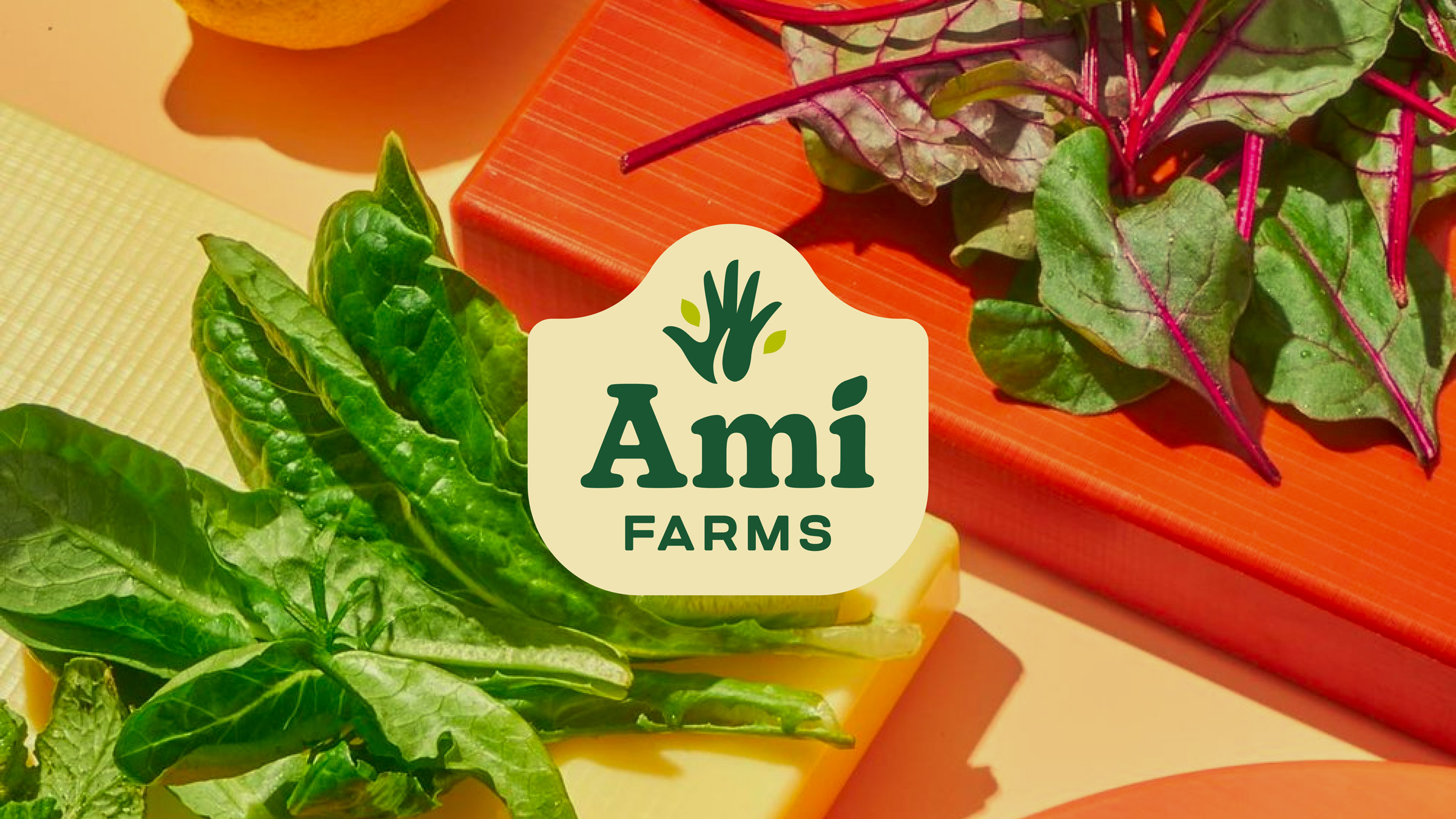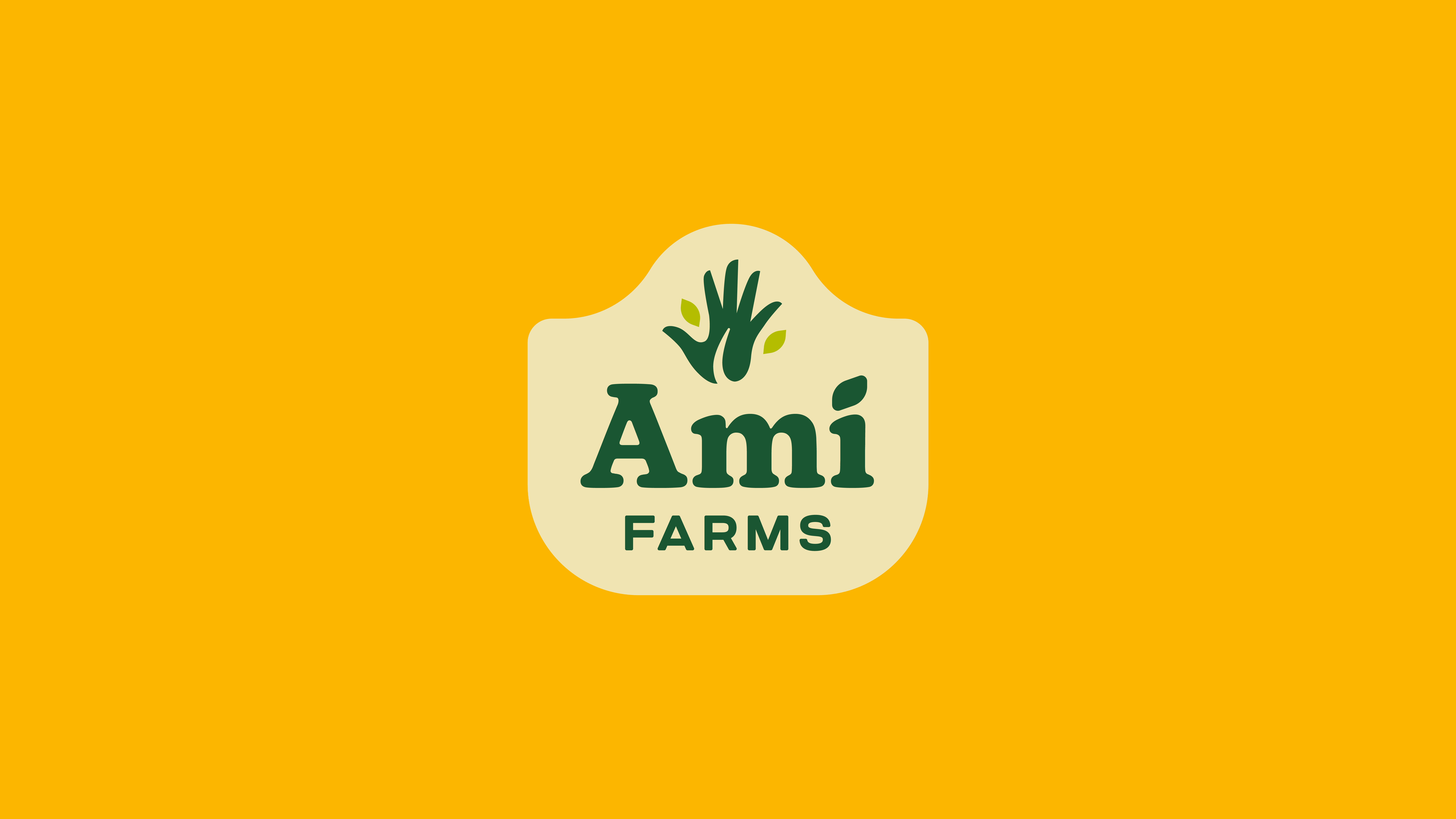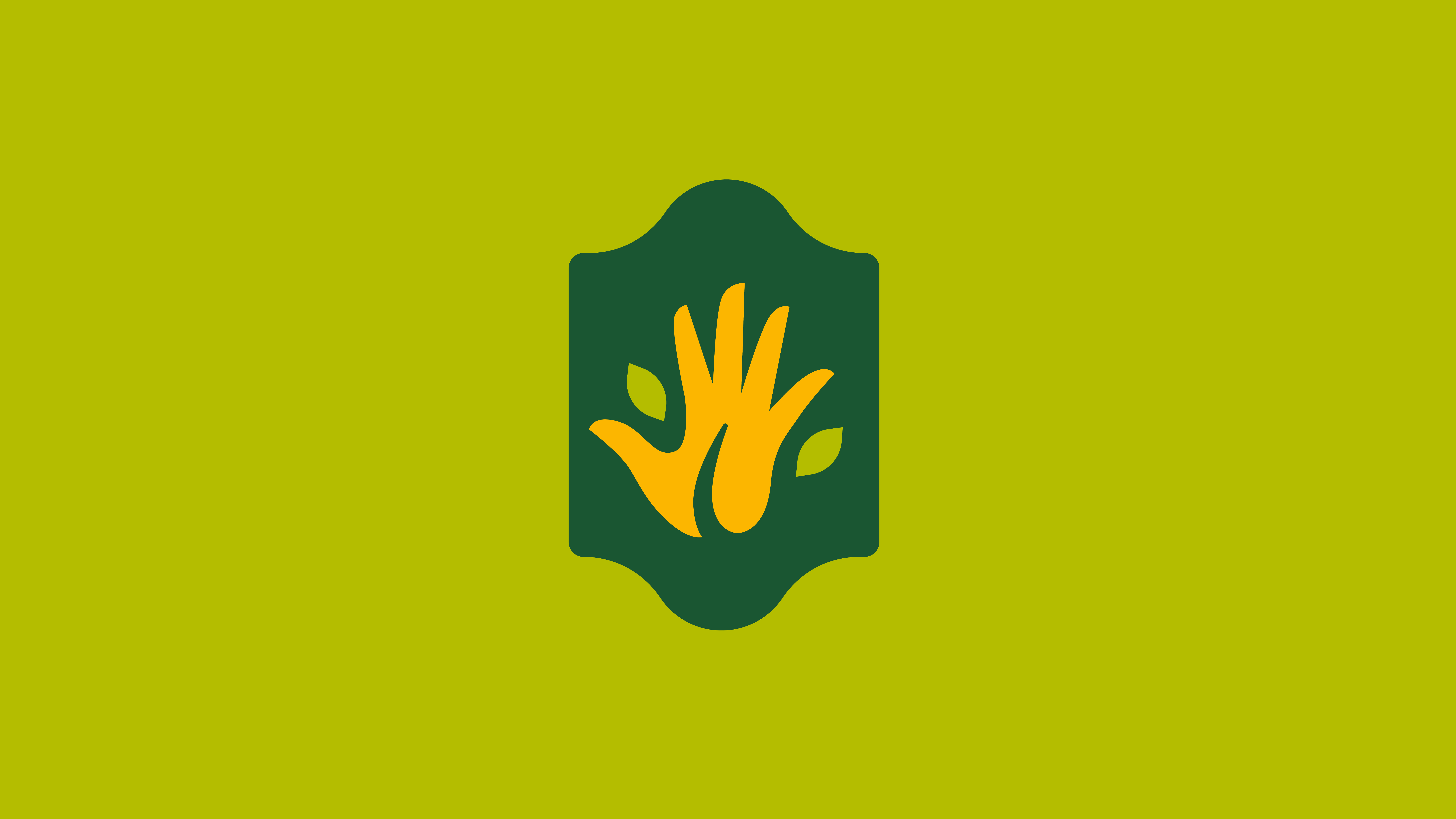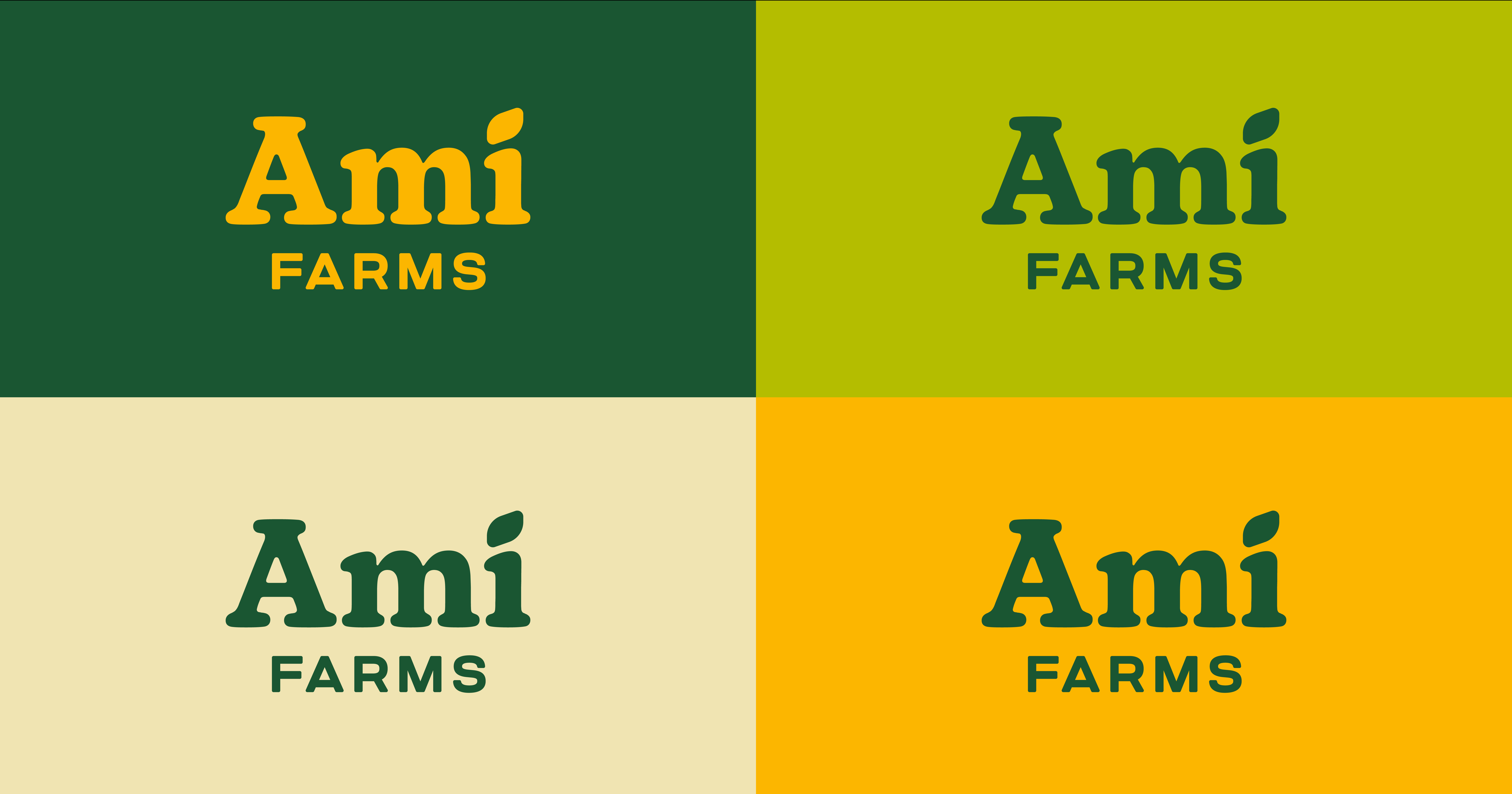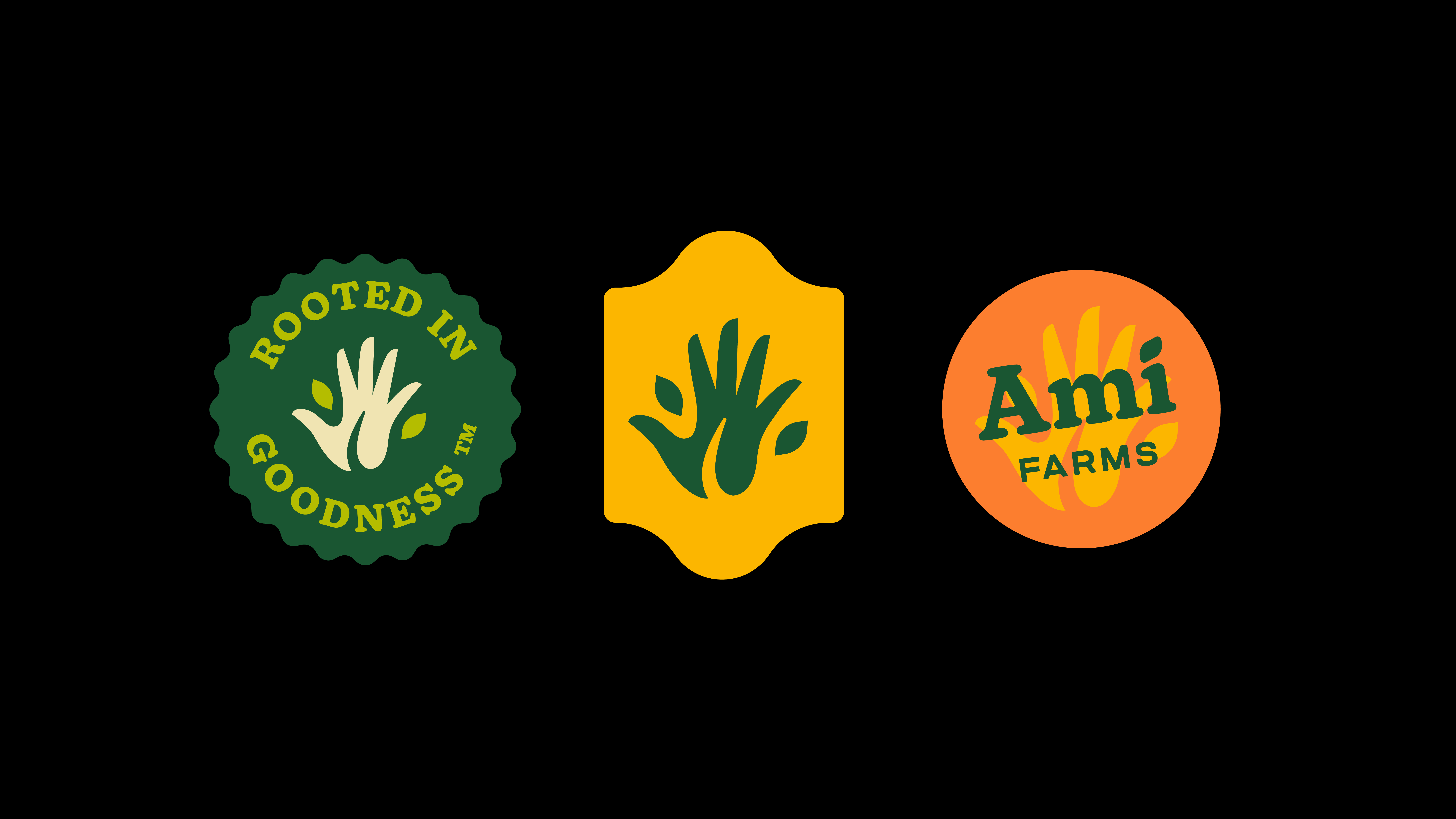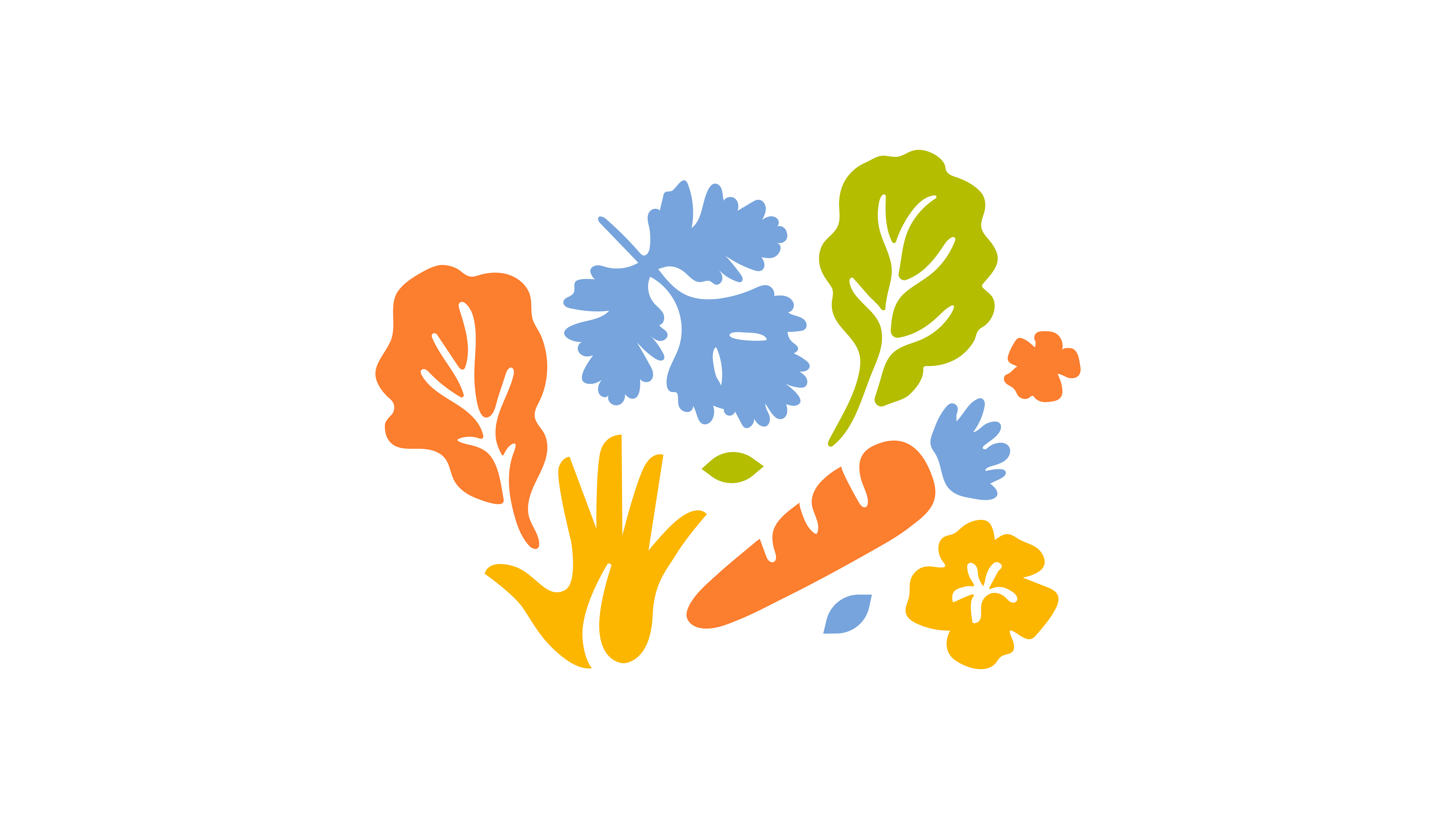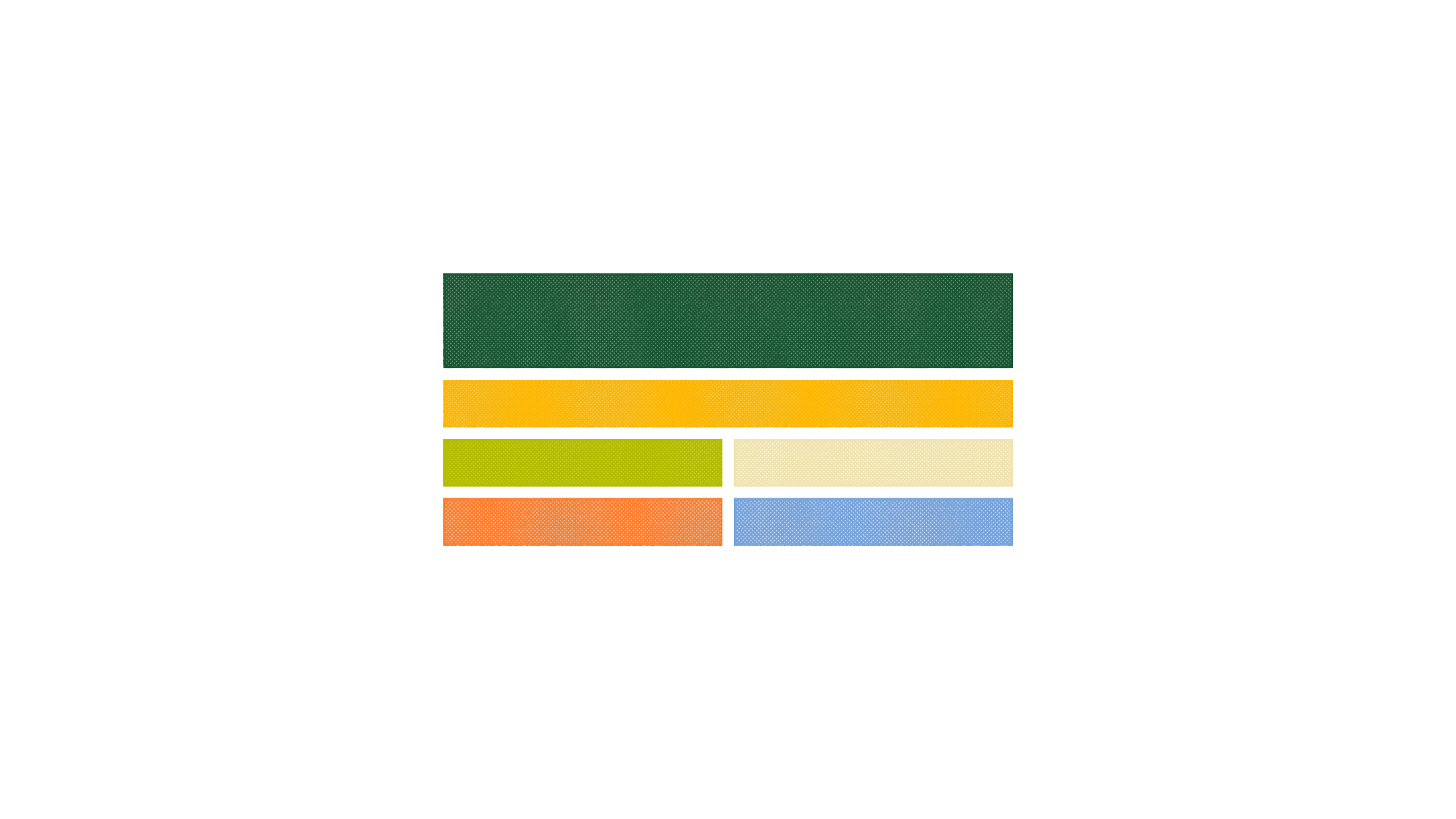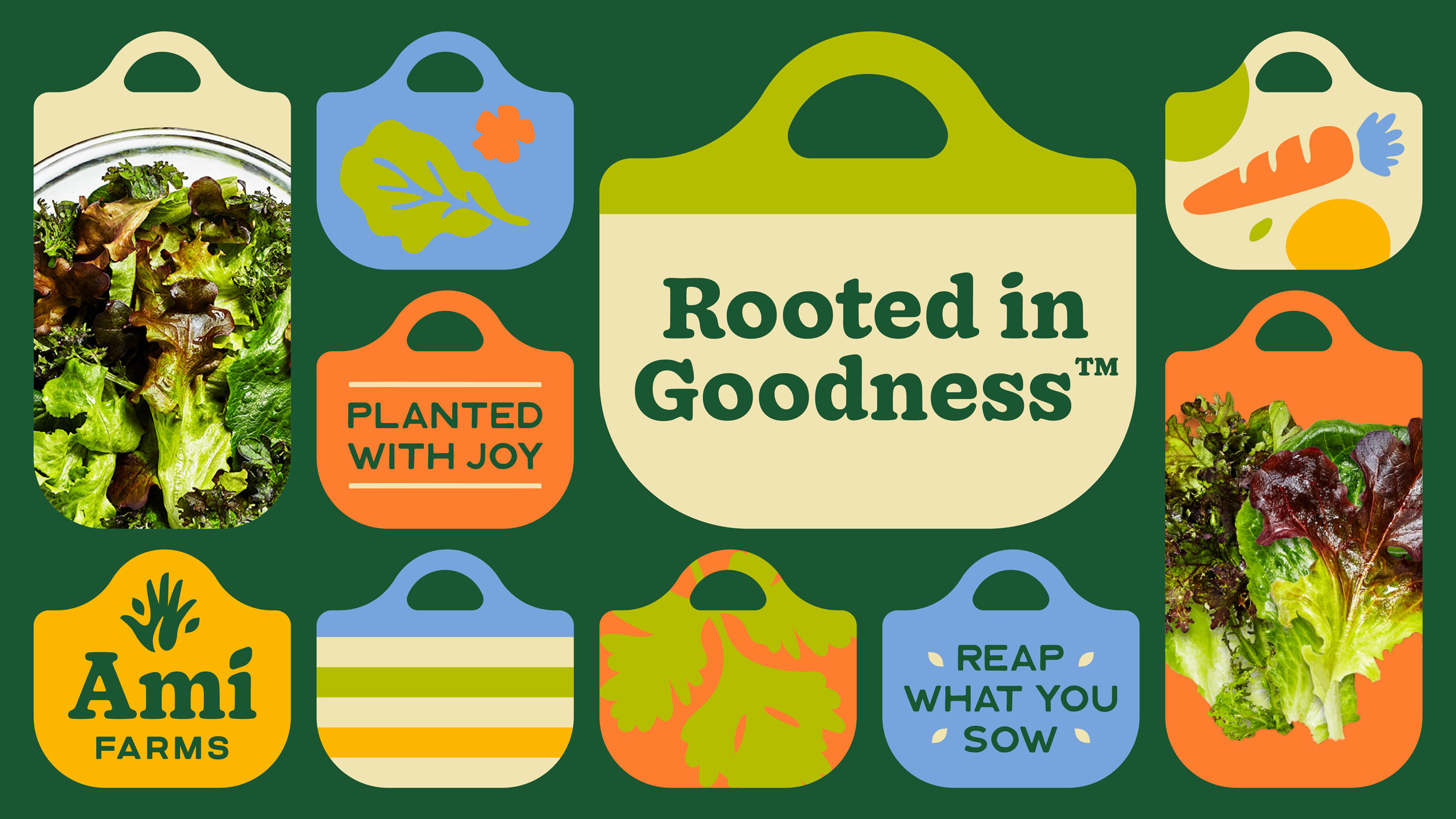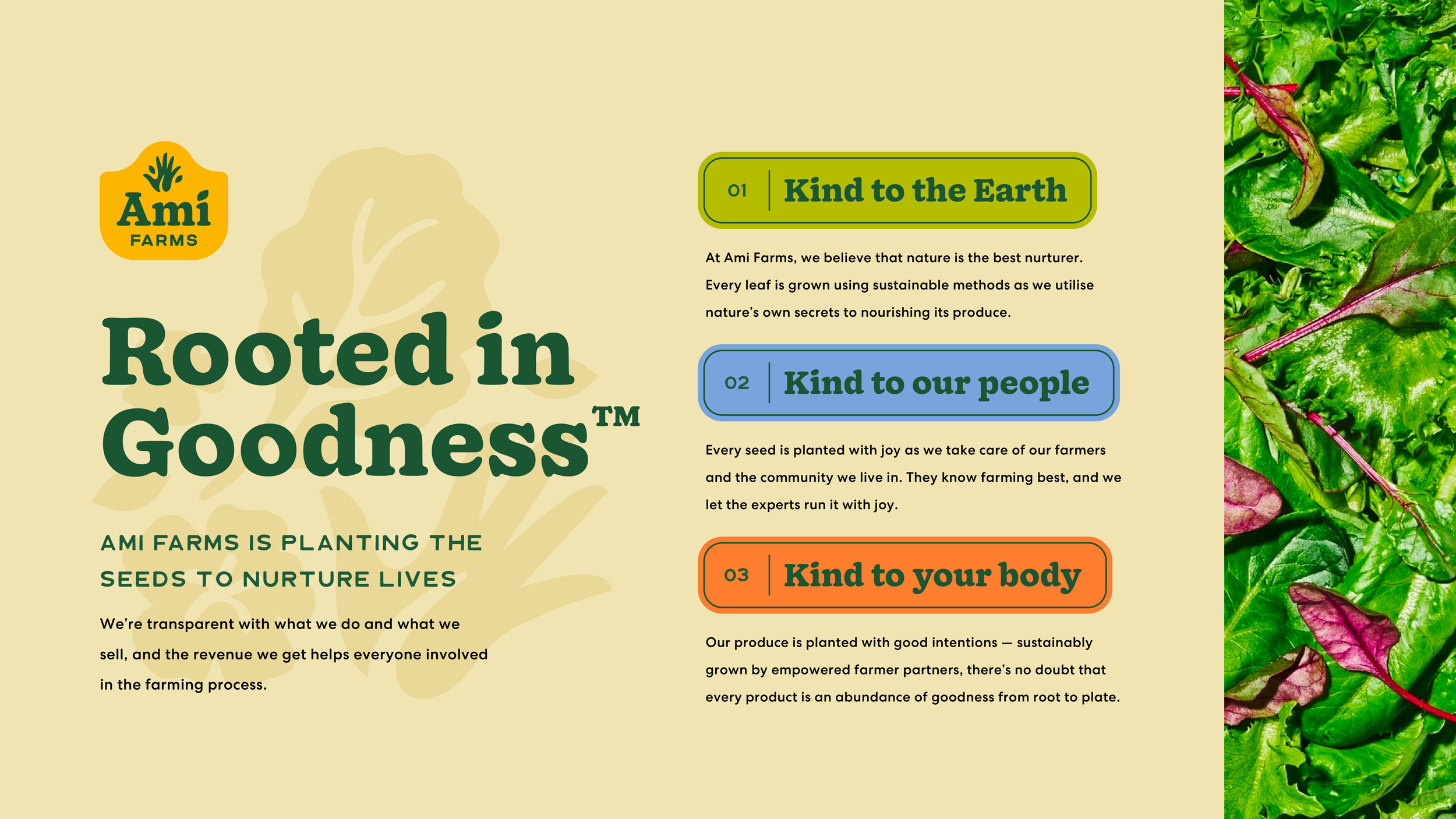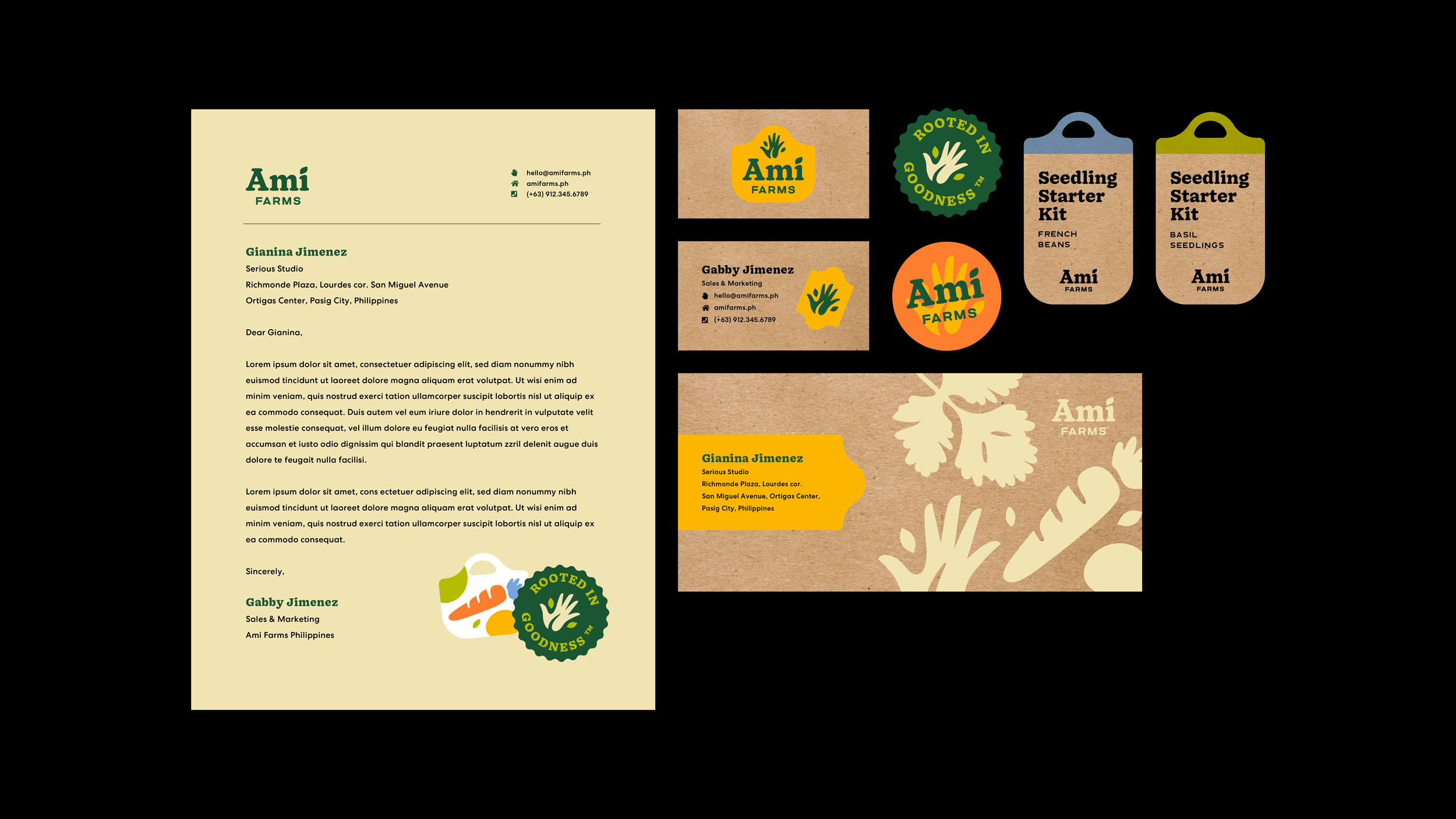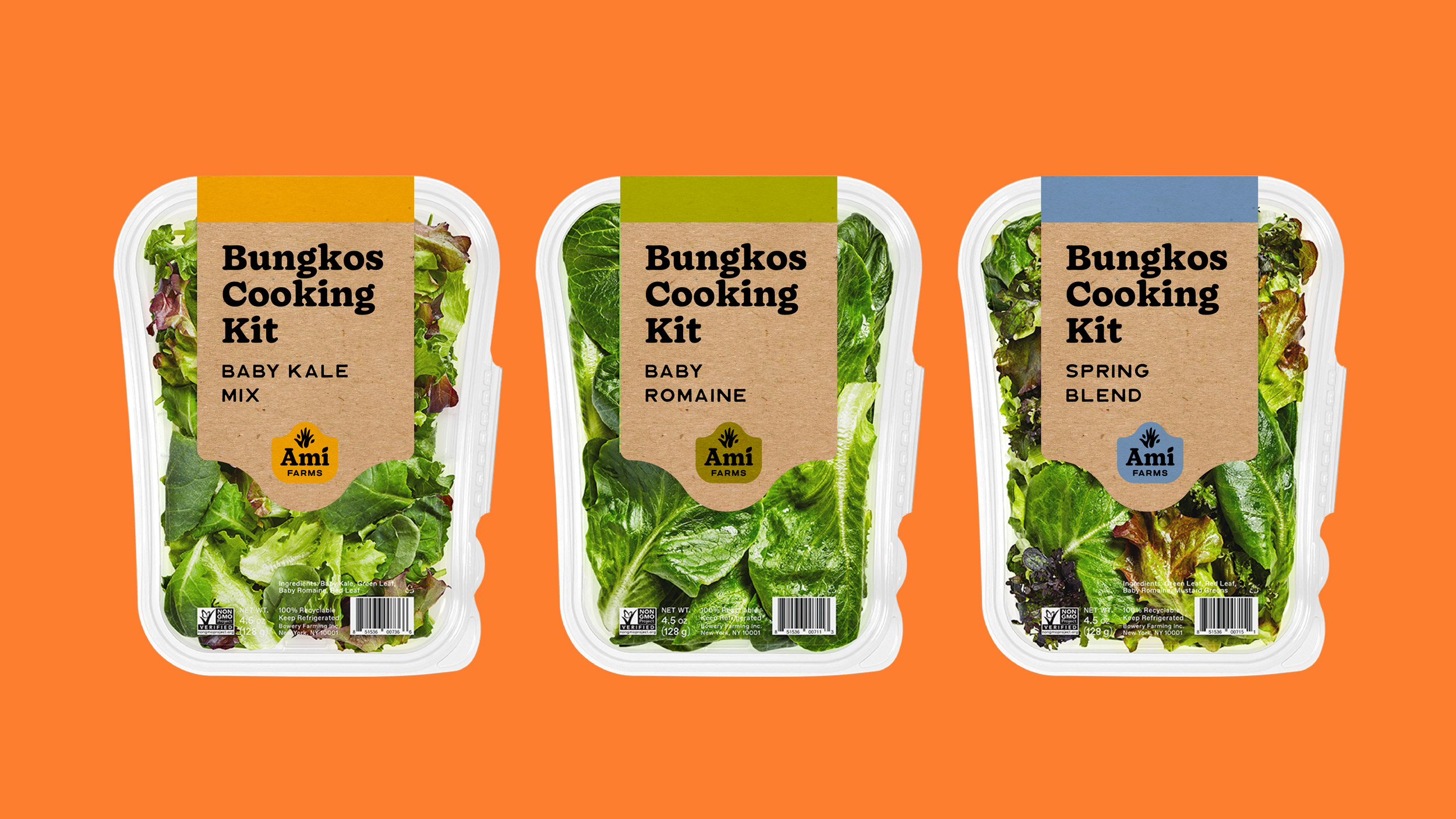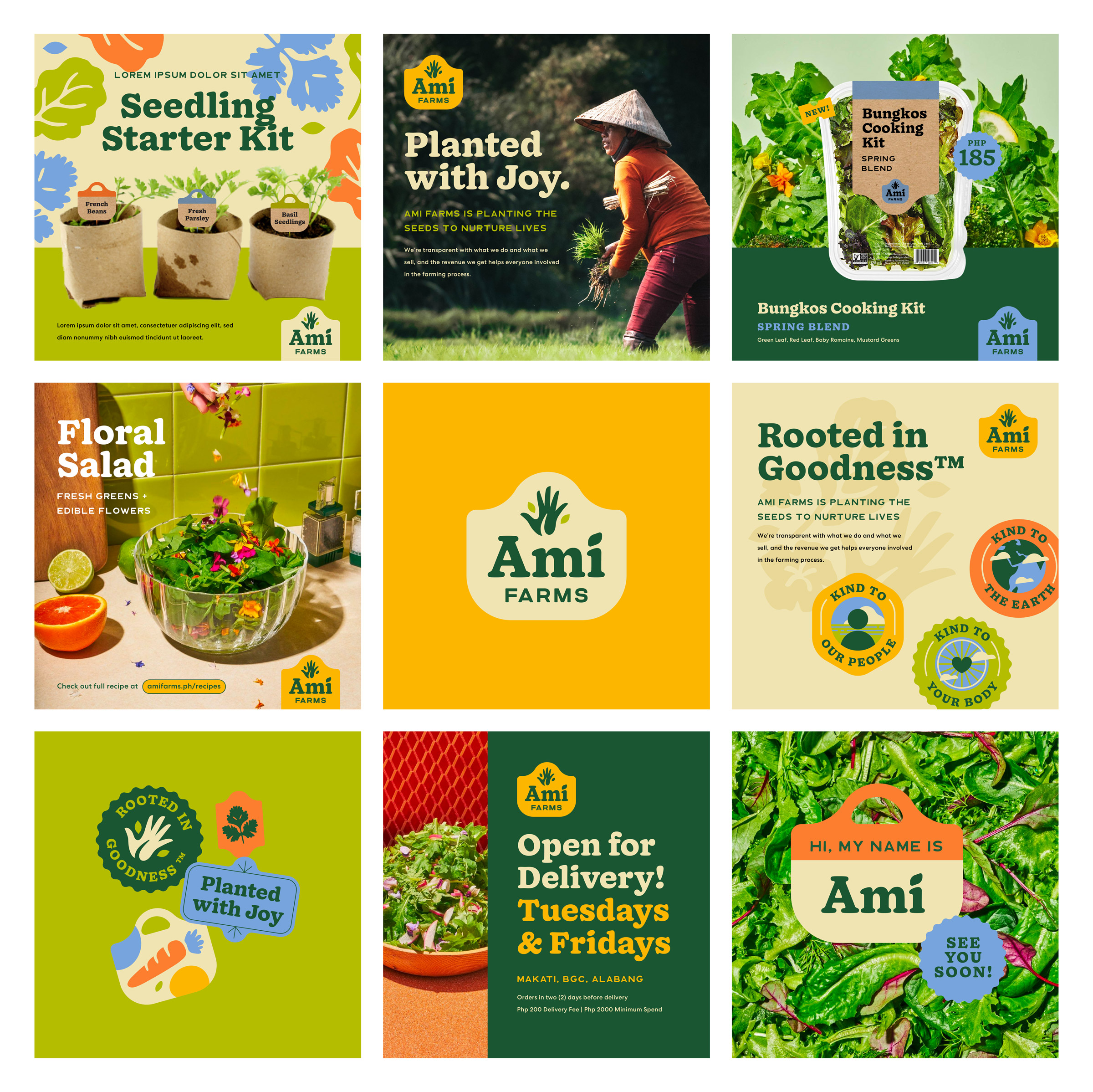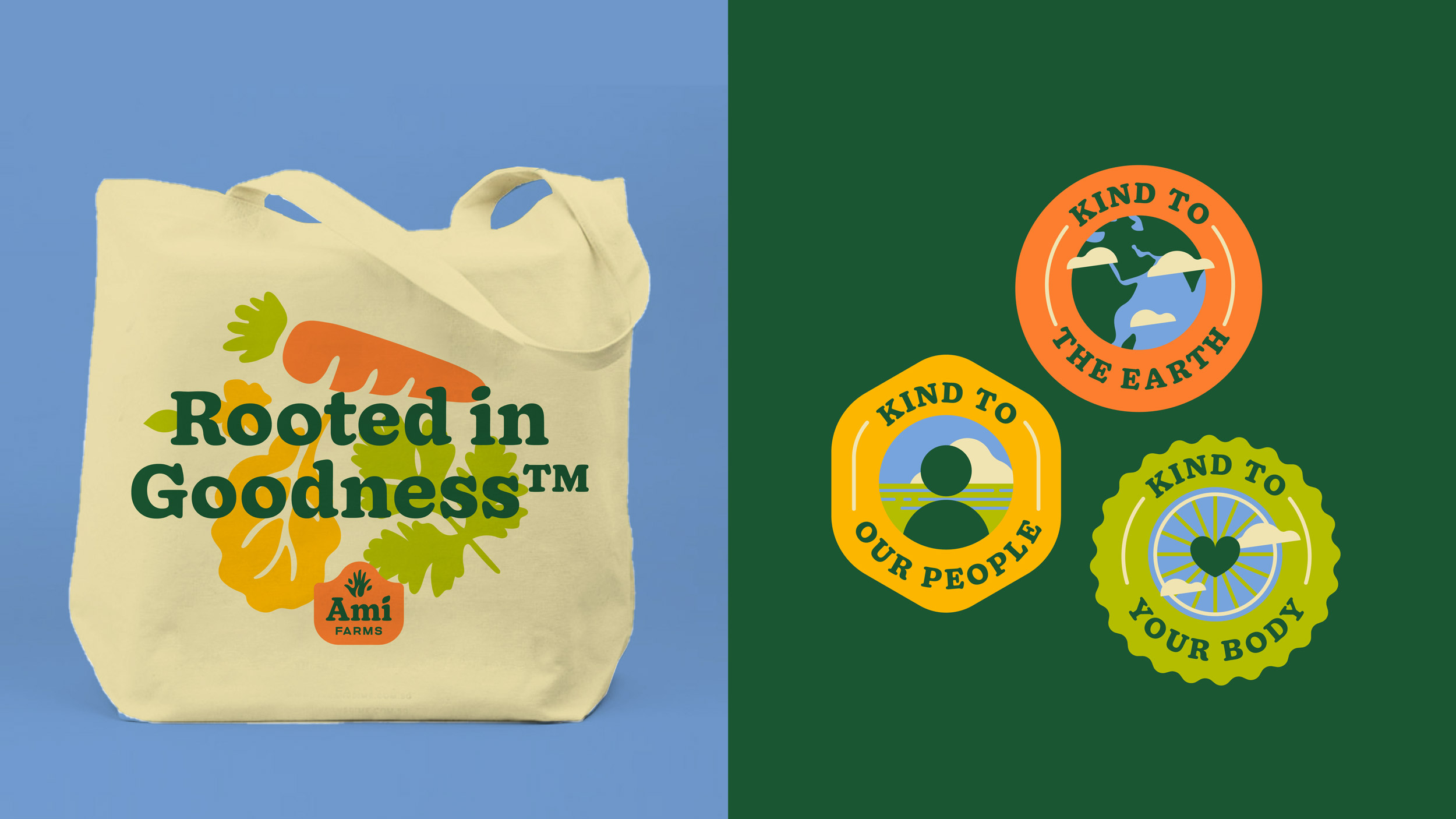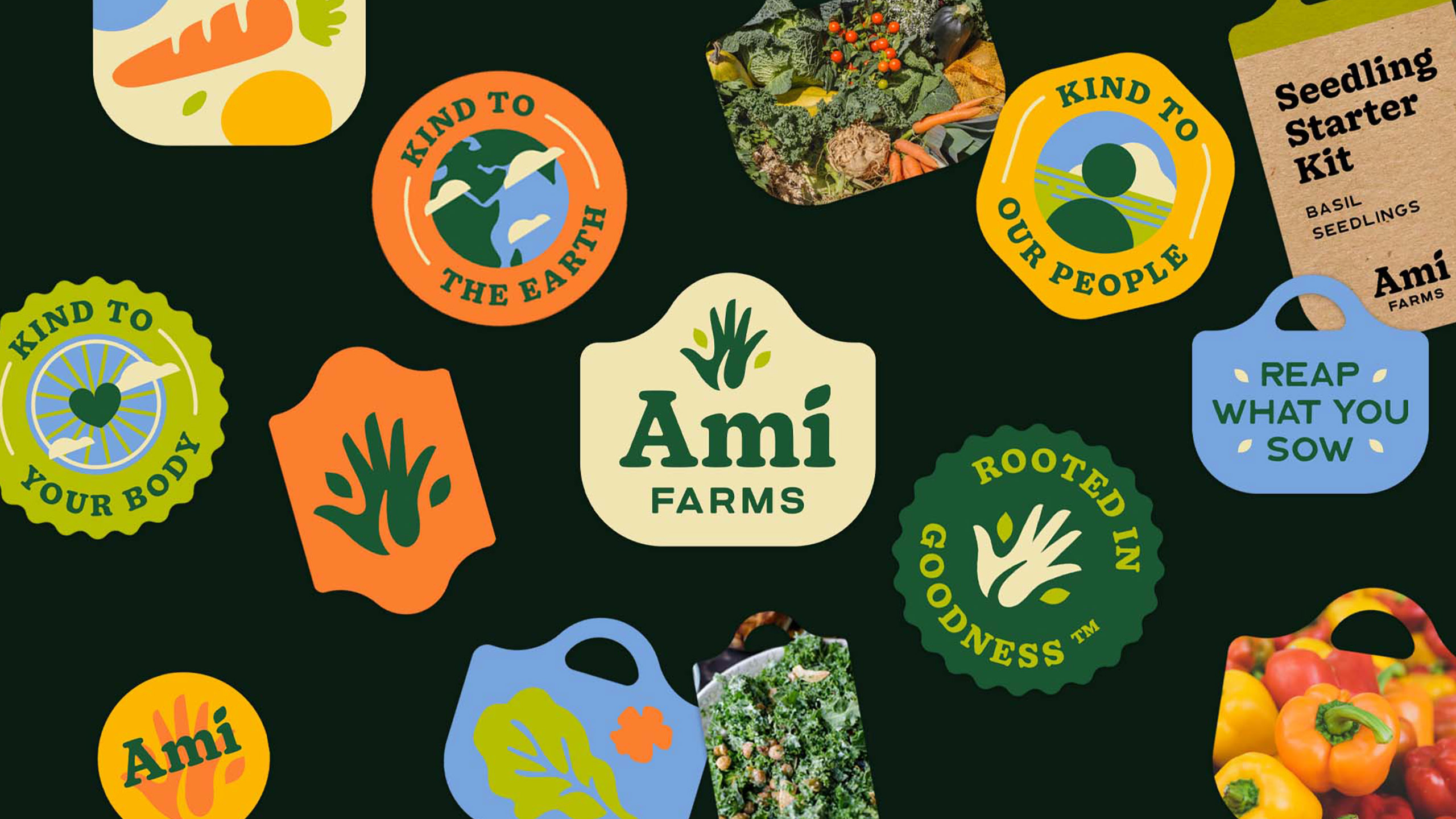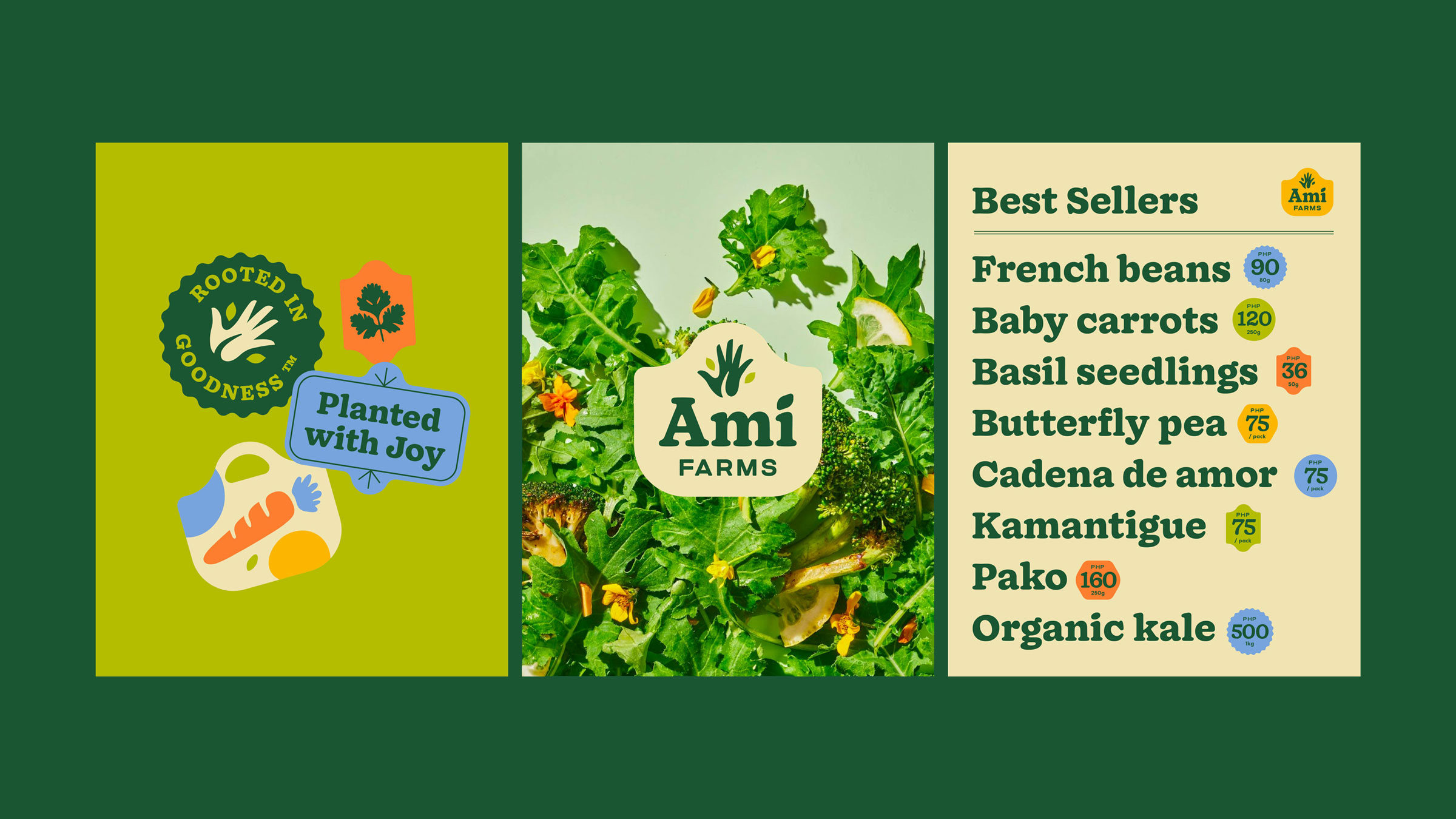
AMI FARMS PHILIPPINES BRANDING
Rooted in
Goodness
BRANDING SCOPE
Brand Strategy
Brand Identity
OVERVIEW
Serious Studio’s Brand Aid is a brand-building mentorship program that aims to help COVID-19 affected SMEs troubleshoot today, in order to future-proof tomorrow. The program aims to uncover core issues, figure out a feasible plan forward, and design a better future together — all for free to grantees.
Ami Farms, previously known as Malipayon Farms, embarked on a brand reimagination journey with us, inspired by the Hiligaynon term for "second harvest". Adapting to the pandemic's challenges, they expanded their market outreach from exclusively catering to restaurants to embracing home cooks. Located in Silang, Cavite, Ami Farms champions biodynamic farming, emphasizing kindness to Earth, its community, and promoting agricultural produce beneficial to health.
Their rebranded logo, a blend of nature's touch and vintage appeal, is complemented by a seal shaped after the traditional Filipino bayong, symbolizing sustainable abundance. Weaving a narrative free from clichés, their e-commerce collaterals, inspired by local market scenes, combine vibrant photos with stamp-like illustrations. This redesign aims to resonate across generations, promoting appreciation for local produce.
